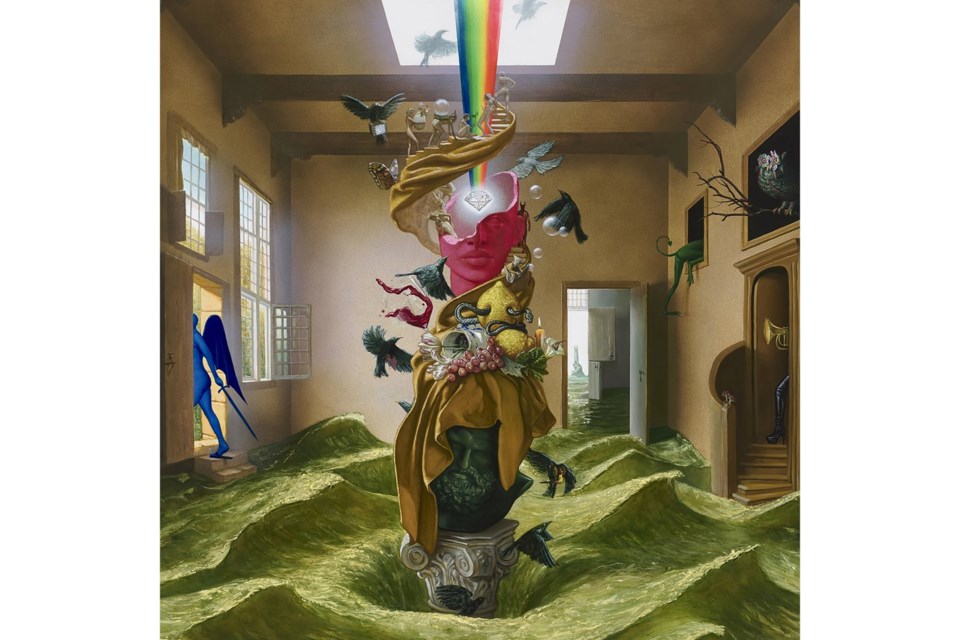When you put on Foster the People's new album and you're happily bopping along to the infectious funk-disco beat of the first track, you might hardly notice the growing sense of dread in the lyrics, as dark as the music is silly-light. Welcome back, Mark Foster.
“My friends were going out last night and I still haven't heard from them,” he sings in “See You in the Afterlife,” a tune that has scary newspaper headlines, an empty Colosseum and even a reference to the war in Ukraine. “It's like we've all been hypnotized.”
It's been seven years since 2017’s album “Sacred Hearts Club" and Foster and his bandmates haven't lost a step, making thoughtful, first-rate pop for a jangled, insecure era with the 11-track “Paradise State of Mind,” the majority written with Isom Innis and with Foster producing the lion's share for the first time.
Like the last collection, Foster the People has glistening pop beside complex tuners, with many of the songs eventually dipping into experimental territory or heavy distortion, like the unconventional flute solo on “Sometimes I Wanna Be Bad” and the hard-to-love “Glitchzig,” which goes through a half-dozen time signatures, shrieking trumpet and elements of antiseptic Kraftwerk.
Highlights include “Lost in Space,” filled with a falsetto chorus and hand-claps, which sounds like it was designed for a roller rink in the ’70s — with unsteady lyrics like “I let the darkness in to teach me” — and “Let Go,” which starts out like a dreamy blast of positive vibes until the last third, when what can only be described as heavenly robots hijack the song, singing, “To be broken is to be set free.”
The heavily distorted, synthetic-sounding “Feed Me” is like a sexy come-on in the digital era — “I want to hack your code and be your anti-hero/Turn you on and let my one activate your zero” — while Foster reveals perhaps his motivation for all this wonderful, creepy weirdness on the last song, “A Diamond to be Born.”
“I look at myself through a broken lens,” he sings in the song, so spacey that it's almost a prayer. “Try my best to keep from unravelling.” You and us both, brother. Along the way, he's given us another diamond.
___
Mark Kennedy is at http://twitter.com/KennedyTwits
___
For more AP reviews of recent music releases, visit: https://apnews.com/hub/music-reviews
Mark Kennedy, The Associated Press




